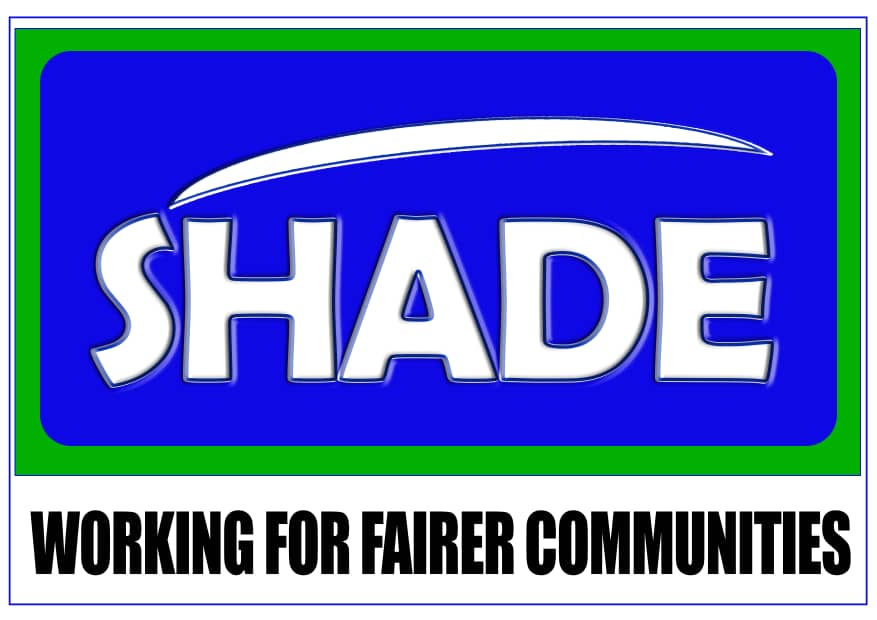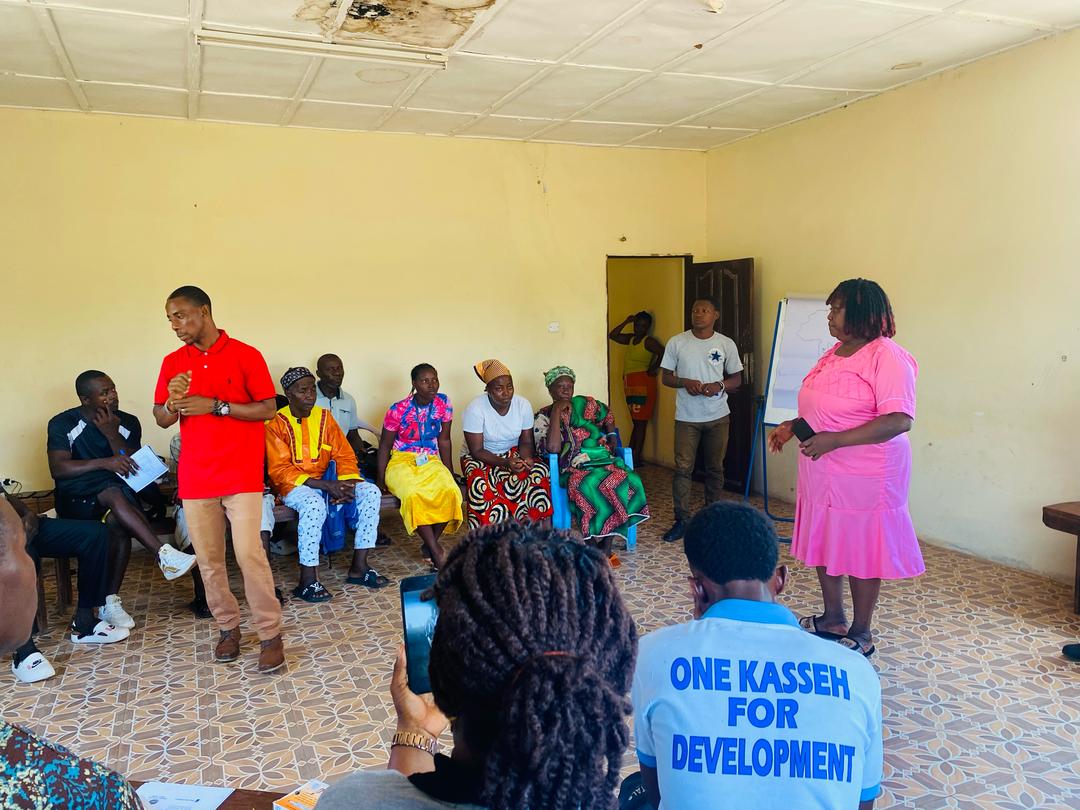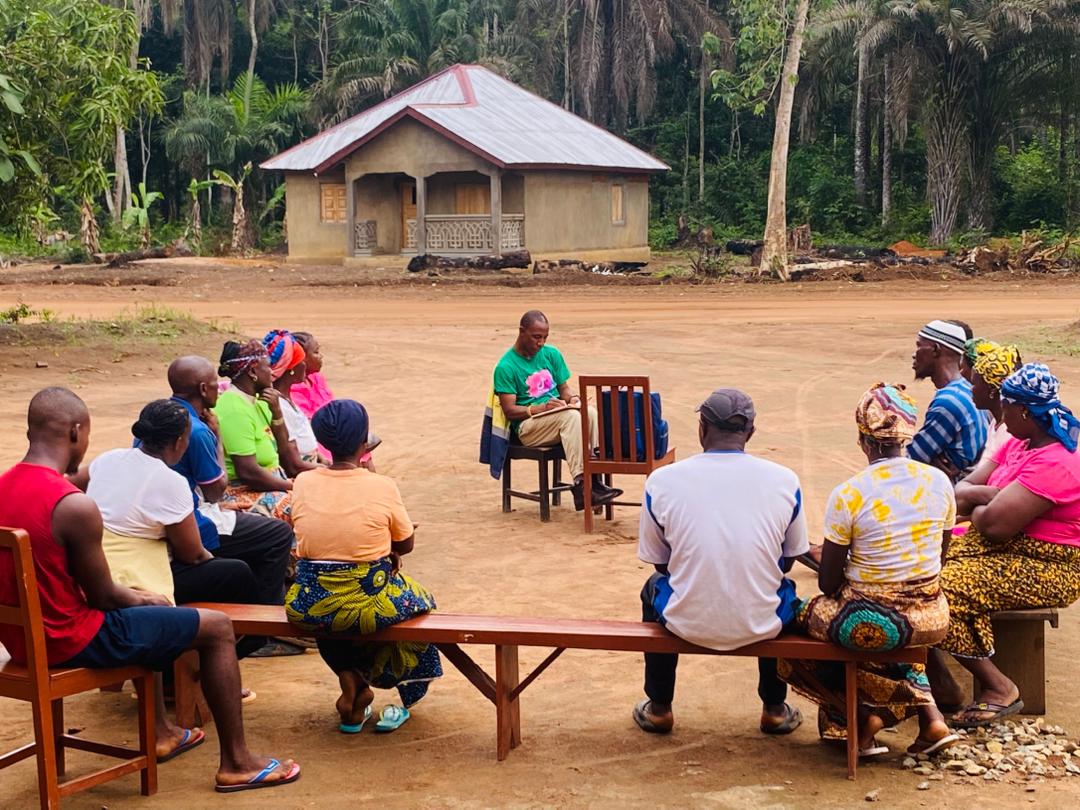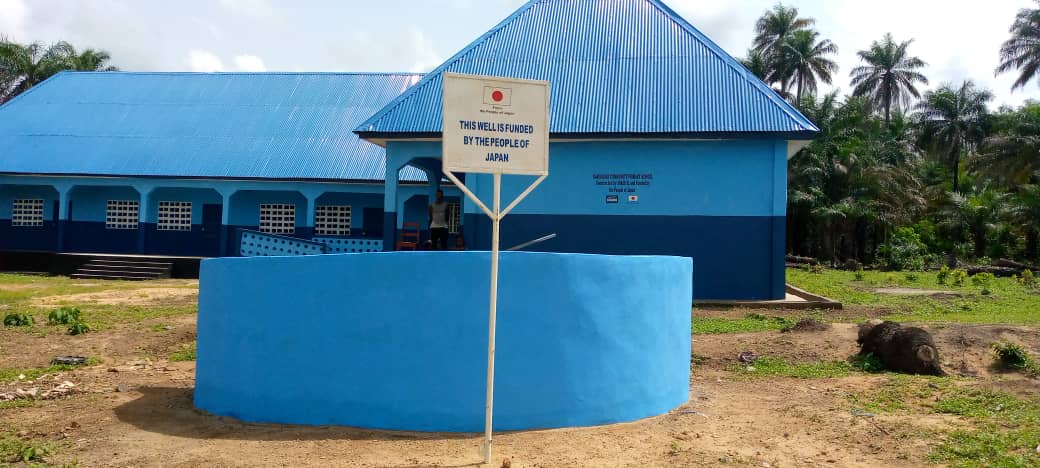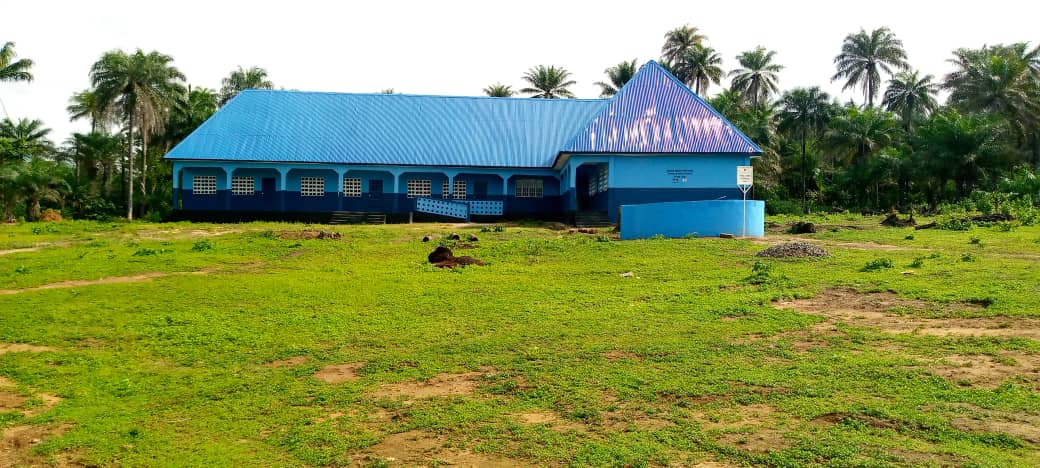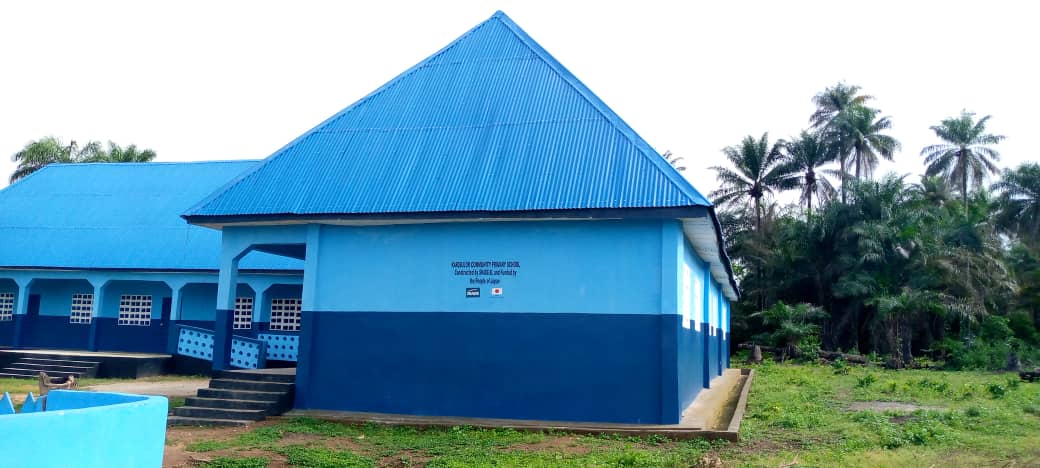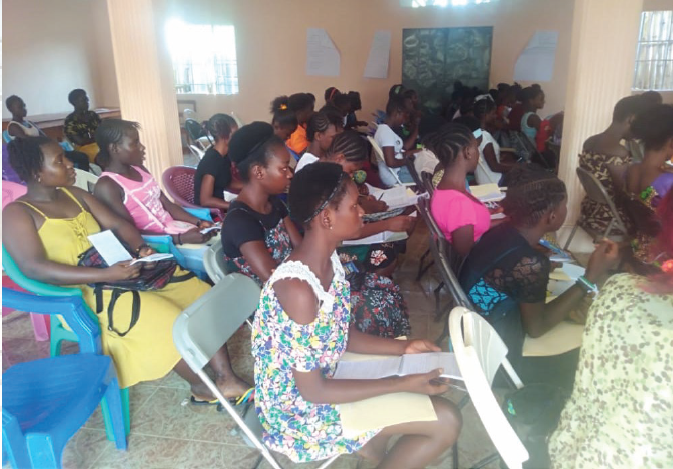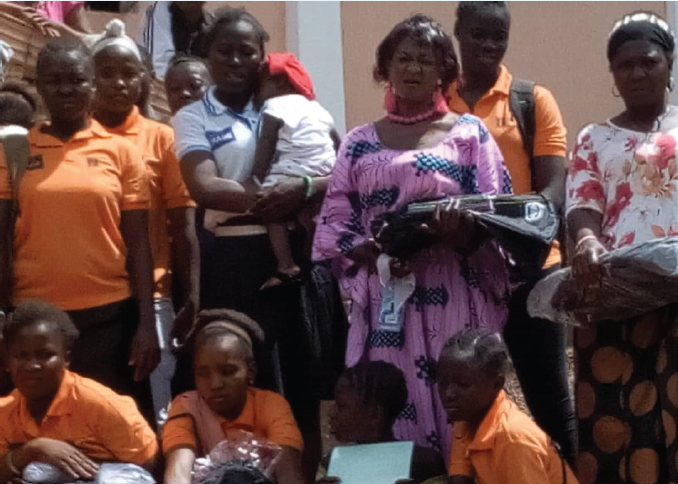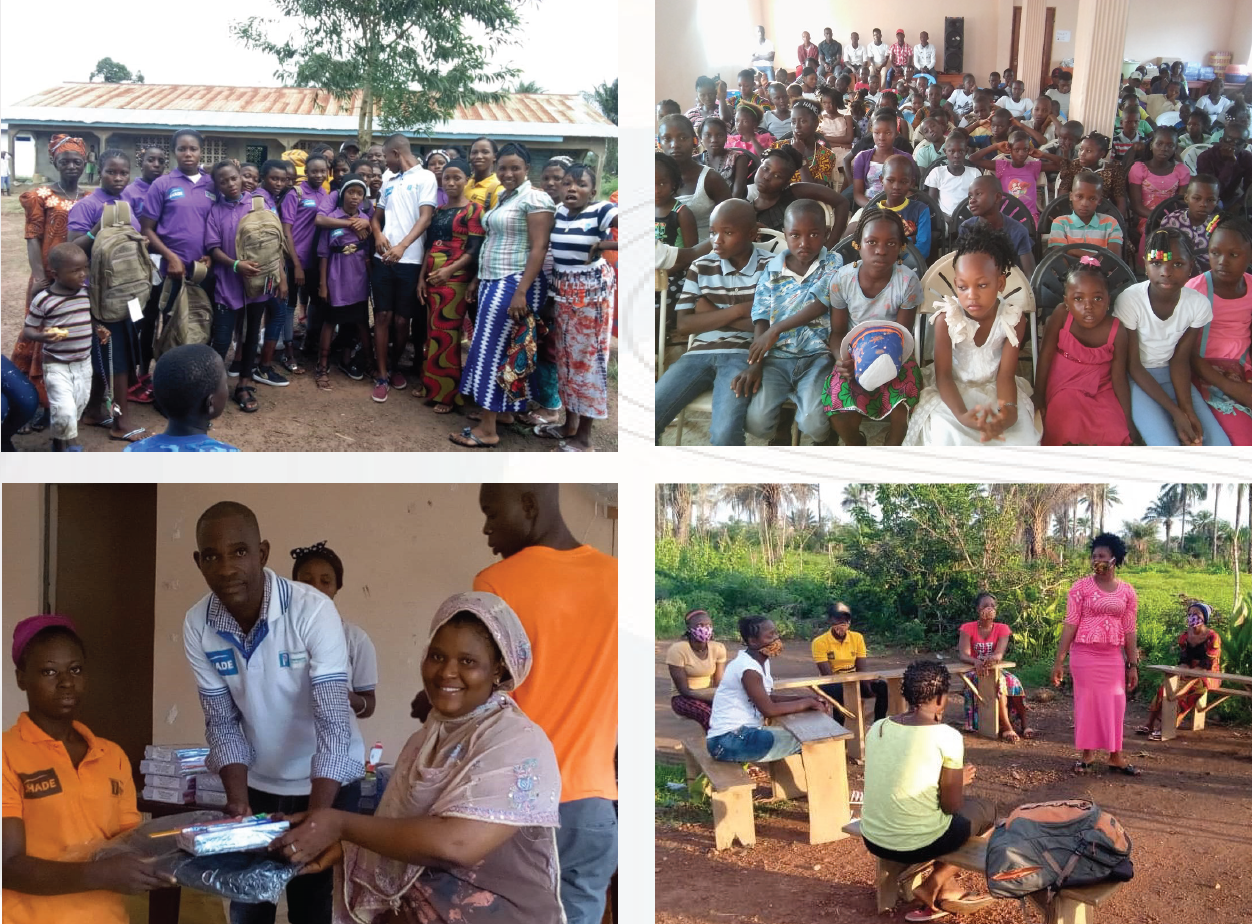
Our Work
Our main programme thrust is advocacy on Sexual and Gender Based Violence (SGBV) with primary focus on FGM, early marriage and human trafficking. We also work on issues related to:
- Education
- Health
- Water and Sanitation
- Food Security
Projects Completed
Health Intervention
Healthcare and health security are fundamental rights for every child, both crucial for their wellbeing, growth in any country but especially in low-income, fragile countries like Sierra Leone with weak health systems, compounded with the problem of access to basic health facilities, especially by women and children who face the huge challenges of enduring resilience and access to quality health care. But the intervention of SHADE-SL in collaboration with the Port Loko district Management Team with support from Save The children International and The Church of Jesus Christ Latter Day Saints has helped to transformed marginalized communities to transcend the lives of children, ensure children have better healthcare and achieve their full potential by ensuring they grow up healthy, strong and a more productive generation. The project targeted Newborns (0-28 days) Infants: 0-11 months, Children: 12-23 months, Children: 24-59 months, Children 0-59 months and Women 15-49 years and will be implemented in Port Loko district.
The project has an overarching goal of reducing maternal, neonatal, and child mortality, stillbirths, and morbidity in Sierra Leone and particularly in selected communities in Port Loko district. In order to successfully implement the project and to ensure community ownership of the whole process, Community Action Group (CAG) members were identified and engaged at community level.
Structured meetings were held with the Community Action Groups members, communities supported to engage with service providers to share community analysis of access and quality barriers and issues, identified priority issues between communities and providers and identified and agreed action plans discussed. Meetings between representatives from CAGs, service providers and decision makers helped to voice issues and advocated for solutions. CAG representatives were encouraged to give feedback and agreed actions were incorporated into action plans. This includes monthly meetings of CAGs, additional meetings to foster different thoughts of community stakeholders, ensuring that adolescent girls and boys including disabilities can input into assessing services, their views are represented, and they are consulted on and approved action plans.
Sexual and Gender-Based Violence
Canada Fund for Local Initiatives (CFLI)
CFLI implemented a project in the three chiefdoms of Upper Magbema, Masumgbala, and Tonkolimba with a slogan referred to as Ginneh Wuray ( a Soso word meaning Strong and resilient woman) aims to revolutionize the treatment of survivors, starting from their initial interaction with law enforcement to their reception of shelter-based care, training and reintegration. This transformative process is designed to impact survivors’ ability to reclaim a sense of safety, empowerment, and agency in the future. Despite initiatives addressing SGBV in Sierra Leone, women and girls continue to face substantial security threats within their communities and homes. Cultural norms, economic constraints, and dangerous traditions exacerbate the already complex issue of Gender-Based Violence (GBV) in Sierra Leone. These factors subject females to various forms of violence, with lack of awareness and trust in the National Referral Mechanism trapping many in abusive situations. Moreover, precarious economic conditions, widespread poverty, corruption, and harmful practices like female genital mutilation and child marriage expose them to heightened SGBV risks, including those linked to human trafficking. Underreporting of violence prevails due to lack of awareness, insufficient reporting channels, and challenges with law enforcement treatment. SHADE proposes prevention and response community work in Kambia, on the border with Guinea, where we have been working for more than one decade. Significant amounts of GBV and cross-border trafficking is being identified here. Programming is done for Family Support Units of The Sierra Leone police, across the district, helping them to respond to survivors and the National Referral Mechanism. This project endeavours to empower community duty bearers to deliver appropriate services to SGBV survivors until their safe reintegration. The project will also raise survivors’ awareness about the role of gender and SGBV in their lives, providing skills for self-sufficiency, utilizing proven therapeutic approaches and training modules. SHADE-SL provides a trauma-sensitive approach training, ensuring would-be survivors feel protected, safe, and supported throughout reintegration. This holistic approach includes enhancing community members’ capacity to respond to unique needs of female SGBV survivors. Further, the project seeks to increase parents’ and community members’ awareness of the signs and effects of SGBV, knowledge about women and girls’ rights and supportive legal instruments, and the ability to report incidents, including referring cases of Violence Against Women and Girls (VAW/G). Furthermore, it also created an arena where school children and their teachers had the opportunity to discuss school related gender-based violence and also had a thorough knowledge on the Teachers’ Code of Conduct. Community stakeholders gained enhanced capacity to address harmful SGBV practices, such as child marriage, female genital mutilation and human trafficking. Ultimately, the project aimed to ensure that survivors are identified, referred for care and treated in a trauma-informed manner from their removal from abusive situations through investigations and the recovery process. By implementing these comprehensive actions, the Ginneh Wuray project strived to enhance access for marginalized women and girls to essential, safe, and adequate services, thereby contributing to ending violence against women and girls in Sierra Leone.
Education
Construction of a Primary School at Kargbulor
SHADE-SL constructed an ultra-modern primary school with sanitation facilities with financial support from the people of Japan at Kargbulor village in Kambia district. The consisted a six classroom school building, furniture with sanitation facilities. Kargbulor and its people has been striving for more than two decades trying to source help for the construction of a school but to no avail until when they came in contact with SHADE-SL in 2022. The village had a school made up from mud and thatch with absolutely no doors, windows, no sitting accommodation, no latrine and no source of clean water. The sanitation facility of the school was extremely catastrophic as children use the nearby bush as latrine.
It was as a result of this woeful situation that the project was funded by the Embassy of Japan in Sierra Leone through the GGHSP project.
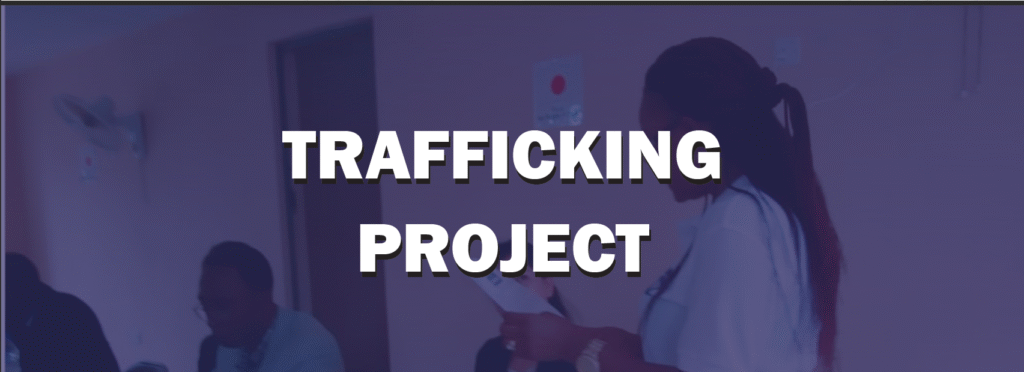
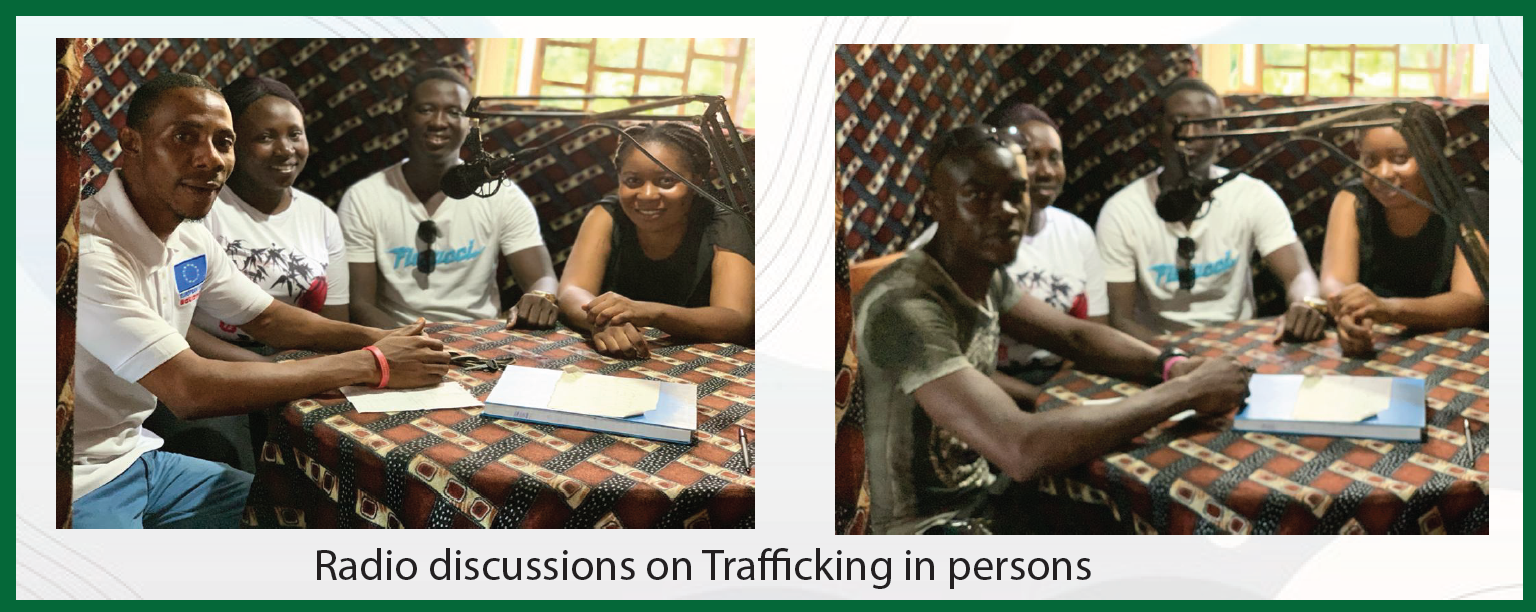
SHADE has been actively involved in anti-trafficking projects since 2014 when it implemented a project on Trafficking in Persons Prevention Project for the ECOWAS Spain Fund for Migration and Development Programme in collaboration with World Hope International. The aim of the project was to address the third area of the ECOWAS Action Plan on Migration and Development- actions for controlling irregular migration and human trafficking particularly of women and children including
a) To fight against irregular migration and trafficking
b) To strengthen migration management capacities
c) To strengthen assistance system for victims of human trafficking.
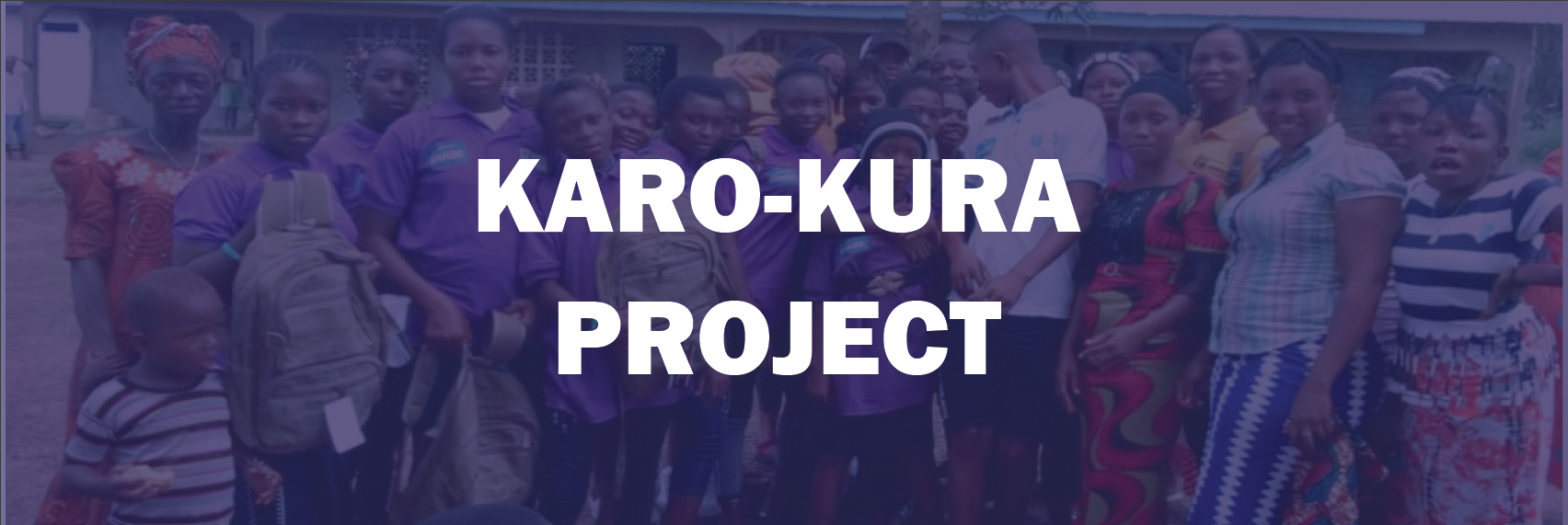
SHADE has successfully implemented a two years project with 70 adolescent girls (with an age bracket of 12-17 years) through peer group mentorship on various aspect like reproductive health, leadership etc with a primary aim of enabling these youngsters to be fruitful in society by encouraging them to either go back to school or learn a livelihood skill that will help them navigate their life journey. This project attracted both in and out of school girls and it was funded by Purposeful.

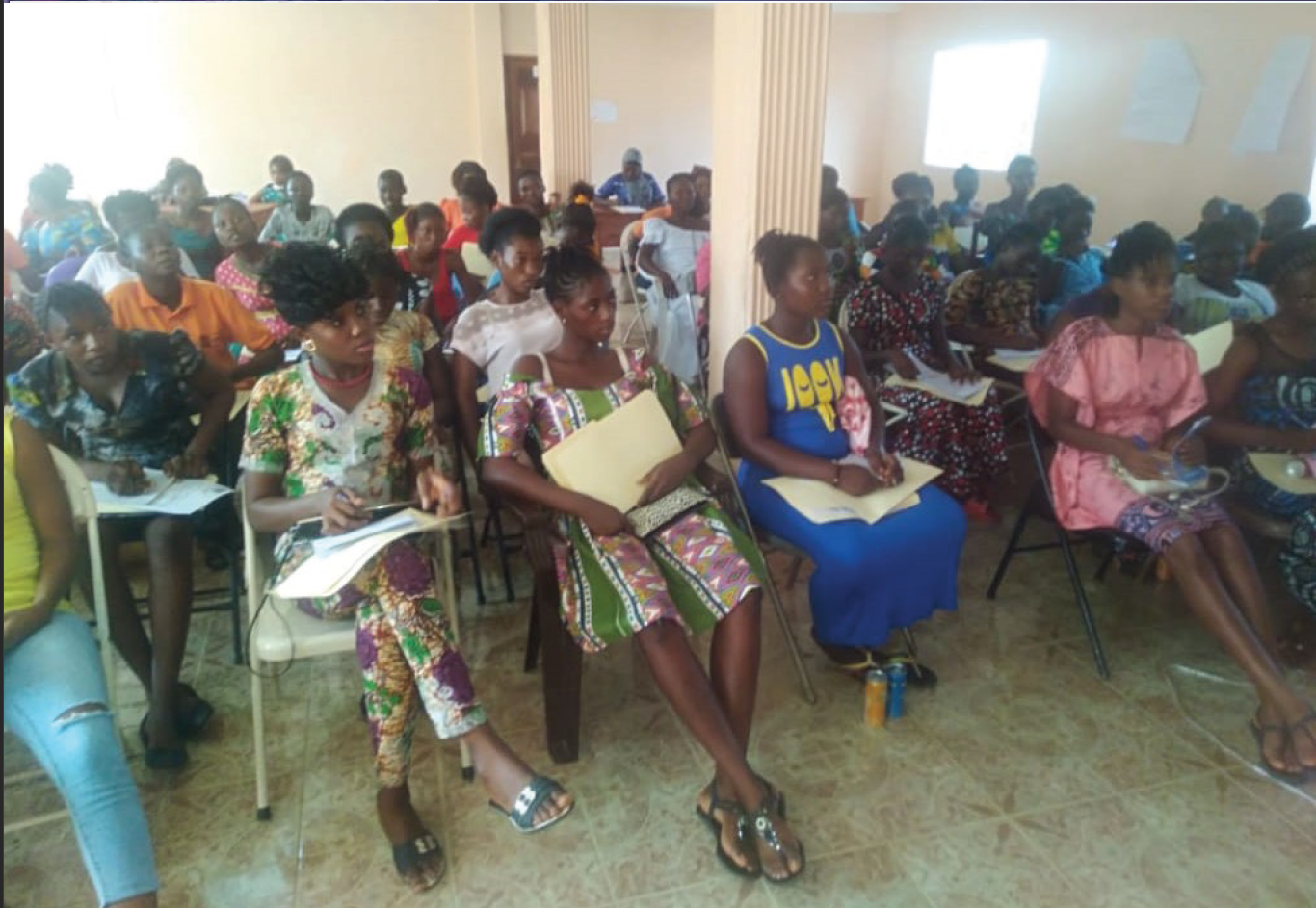
IsraAid in collaboration with SHADE implemented an SGBV by conducting series of community engagements through training for both community and SHADE volunteers by providing them with psychosocial training on sexual and gender-based violence. This followed by identifying and profiling of 150 youth (100 girls and 50 boys) for support in the areas of SGBV and providing them with economic empowerment.

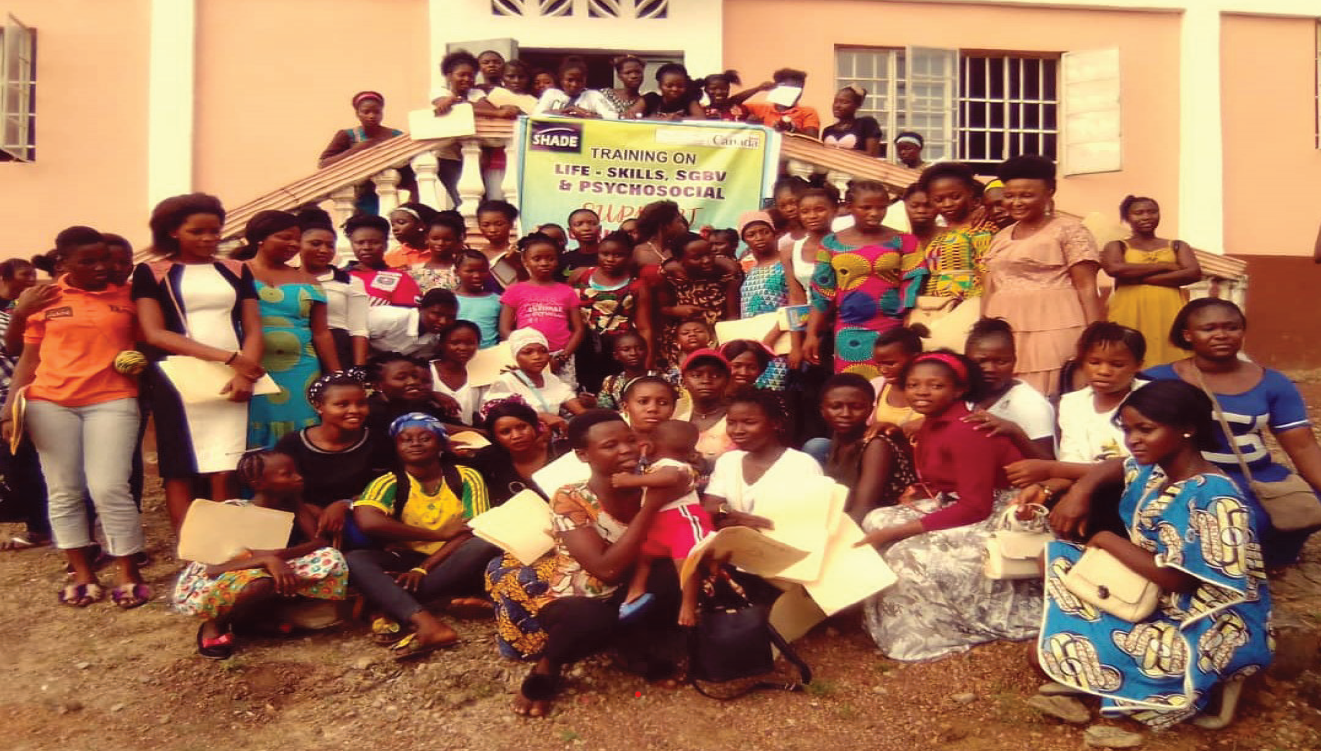
As FGM is one of the most frequently harmful traditional practices performed in the district, we received a six months funding from Canada Fund for Local Initiatives (CFLI) to implement with 60 in and out of school adolescent girls within the ages of 12-17 on life skills, FGM and sexual and gender-based violence issues in the district. The project helped to transform the lives of girls within the Kambia community.
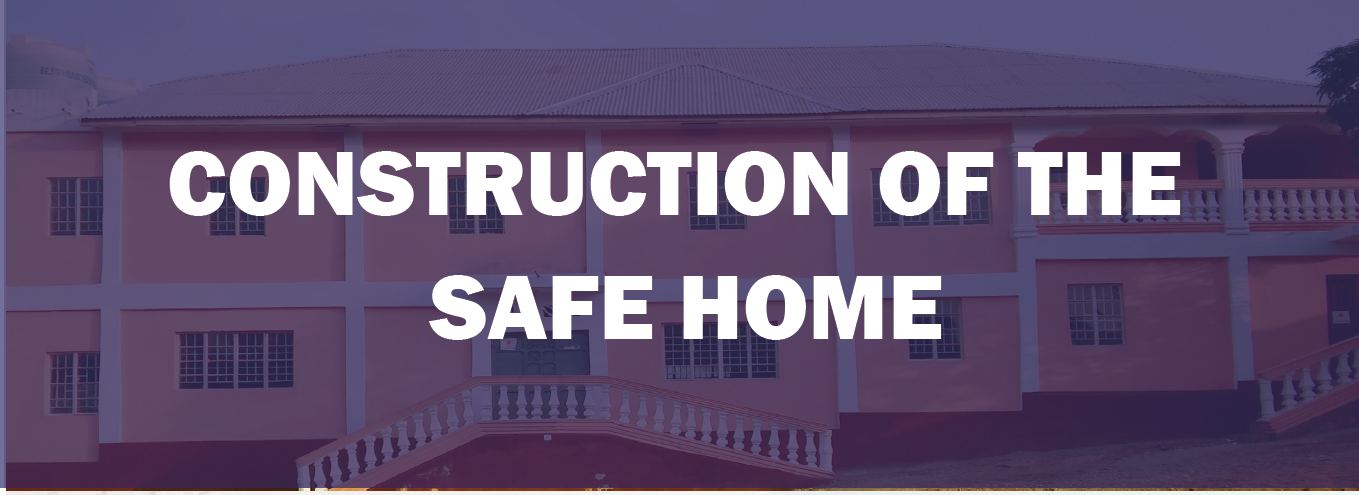
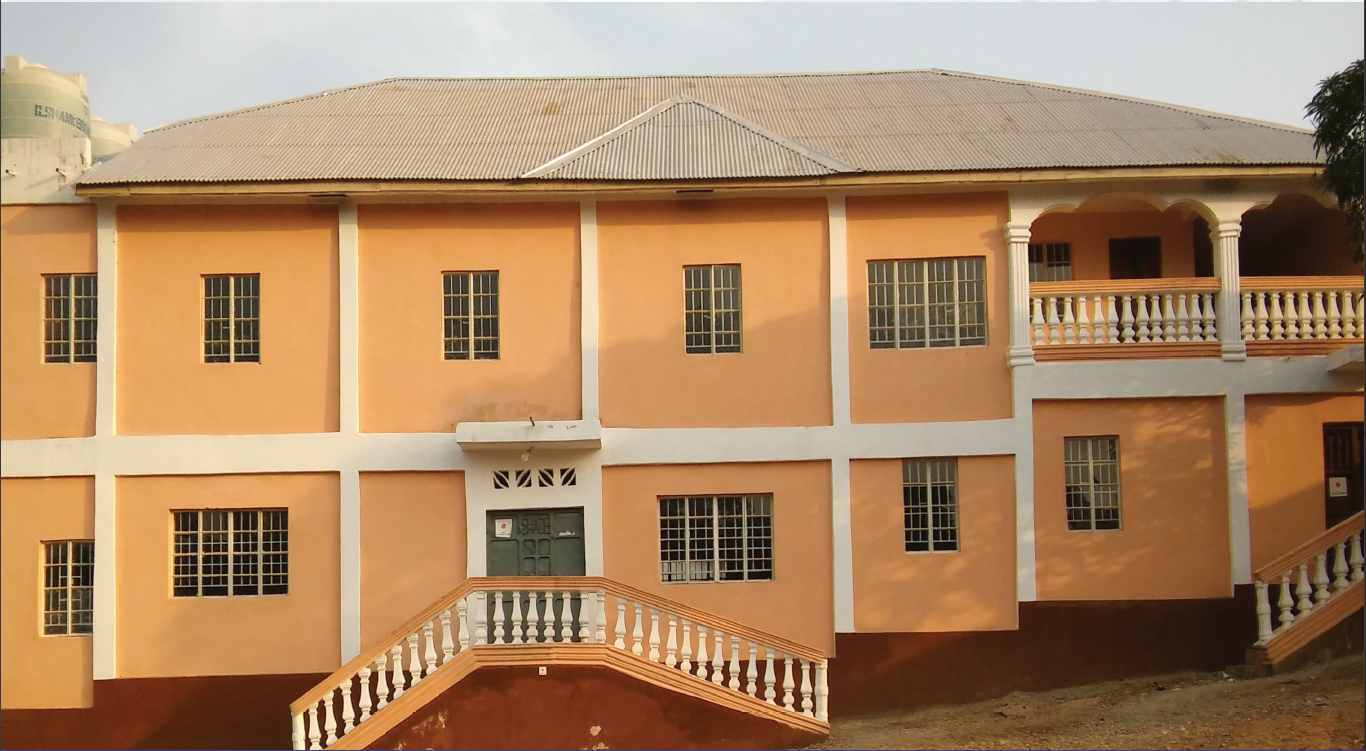
The geographical location of Kambia district gave rise to the high rates of both sexual abuses and trafficking in persons. This led to the construction of a Safe Home for victims of both SGBV and Trafficking. Today, the building has a 24 bed capacity and it is providing the necessary protection needs of victims of SGBV and trafficking. This project was constructed by the Embassy of Japan through its GGHSP funds.
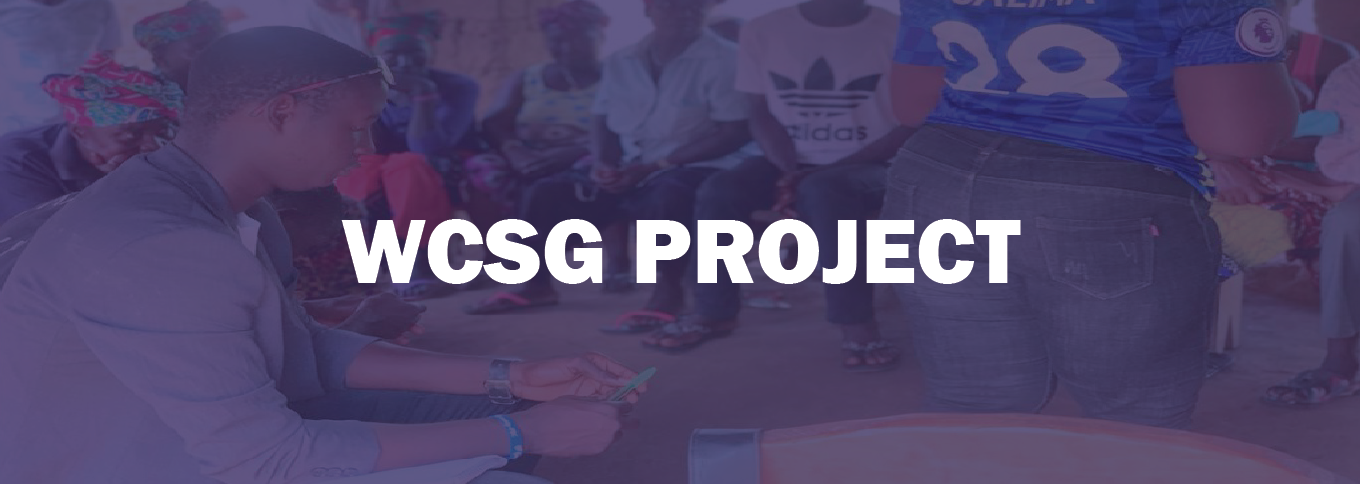
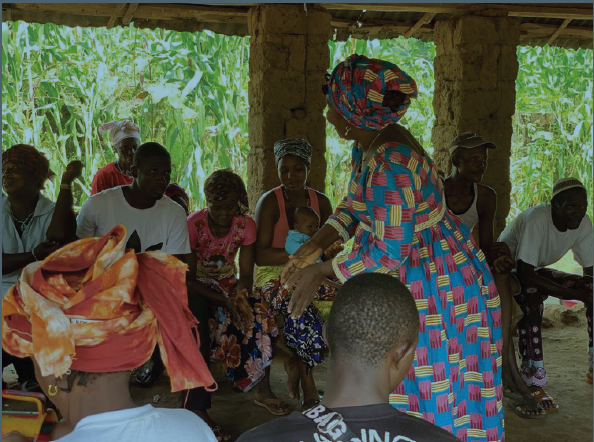
Presently, we are implementing a two year project called Women Community Solidarity Group (WCSG). The aim of the project is to train community women both leaders and non-leaders on con ict management, peace building, transparency and accountability on local governance activities and service delivery practices in Kambia district. This project has helped community women to be initiating peacebuilding programmes and as well as settling disputes between and amongst community members on conflict matters. As both State Actors and Non-State Actors are demanding for accountability and transparency from local government service delivery system, these women are trained to be able to hold their local government accountable on funding they received on their behalf.
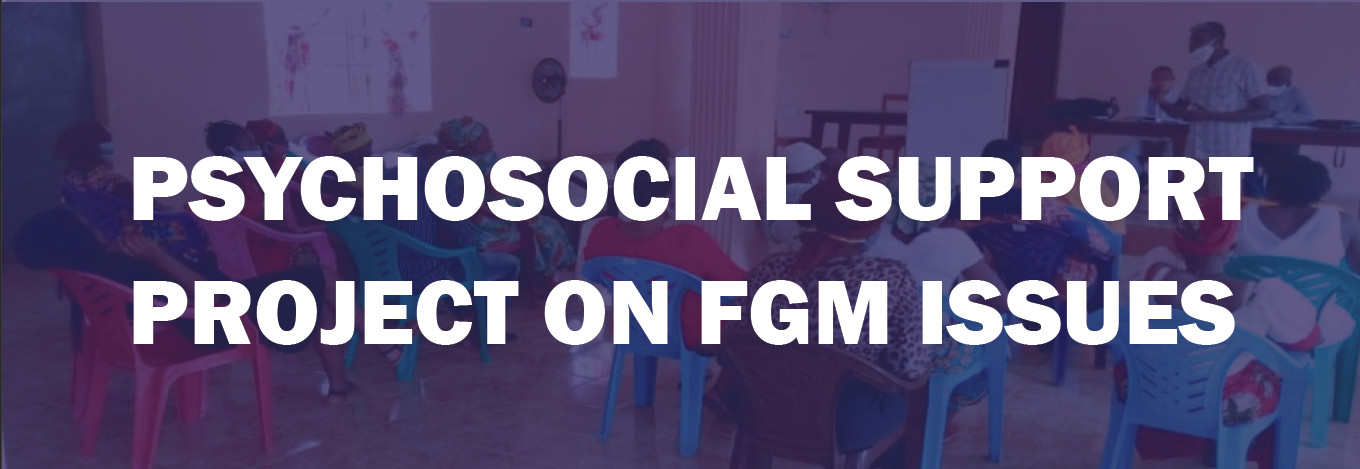
As part of our psychosocial support/counselling, we received a training of trainers (TOTS) for two (2) SHADE-SL staff on psychosocial therapy with regards to trauma healing and conflict management for human wellbeing status in the 2018 and 2019. In 2019 to date, we have being receiving funding from Lemon Aid fund-USA through partnership to train and counsel over 200 community members and stakeholders on psychosocial therapy on forgiveness, gratitude and appreciation with regards to female genital mutilation/cutting victims and community people’s health and social wellbeing in their communities.
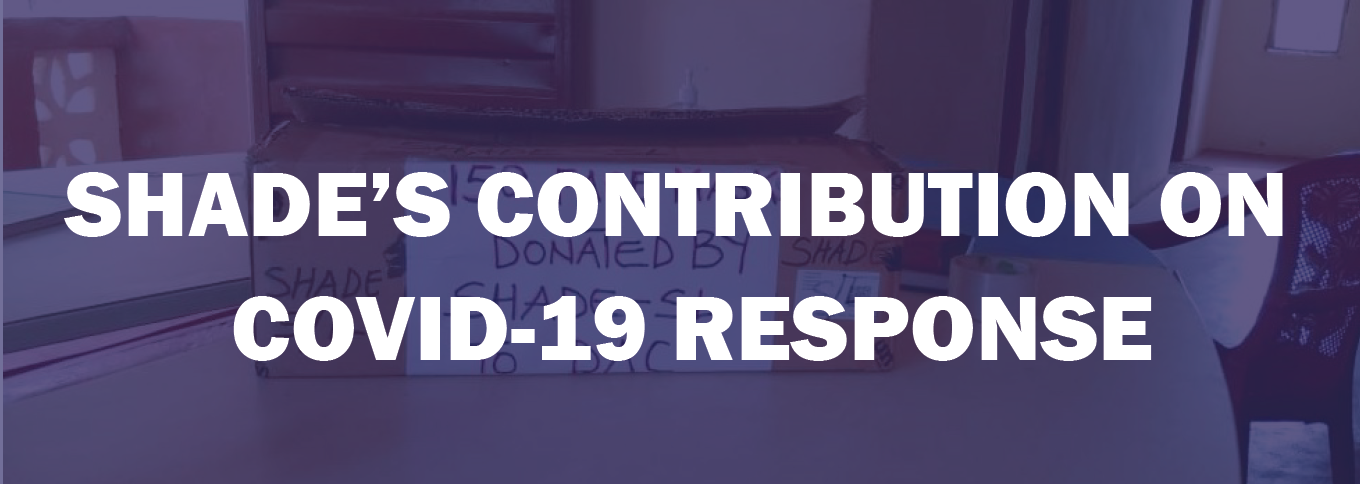
Since the emergence of the novel coronavirus COVID-19 in Wuhan China in December, 2019, the virus has spread and killed thousands of people in various parts of the world. All affected countries are working assiduously to slow the spread of the virus by testing and treating patients, carrying out contact tracing, instituting travelling bans, quarantining citizens, cancelling large gatherings, encouraging social distancing amongst others. On 31st March 2020, Sierra Leone recorded its first COVID19 case. Despite all efforts made by Government of Sierra Leone, and the International Community, the epidemic continues to have an upward trend with people infected in various locations in the country. To further prevent the spread of the epidemic, the government of Sierra Leone has developed and finalized their preparedness plans for appropriate response of any further outbreak of COVID 19 Disease by encouraging its citizens to follow the guidelines developed by WHO and the Ministry of Health and Sanitation.
As an organization working in Kambia district, we organized structured engagements with traditional healers and traditional Birth Attendants on COVID 19 prevention and control. Traditional people are individuals that use traditional medicines to cure sick people and their contribution to society is quiet immense. But looking at the nature of COVID-19 and its mode of transmission, we decided to encourage all the traditional healers to call the emergency Toll number of 117 whenever they have sick people rather
than them treating any sick person and above all, to abide to the rules and regulations of COVID-19 set by WHO and the Ministry of Health and Sanitation.
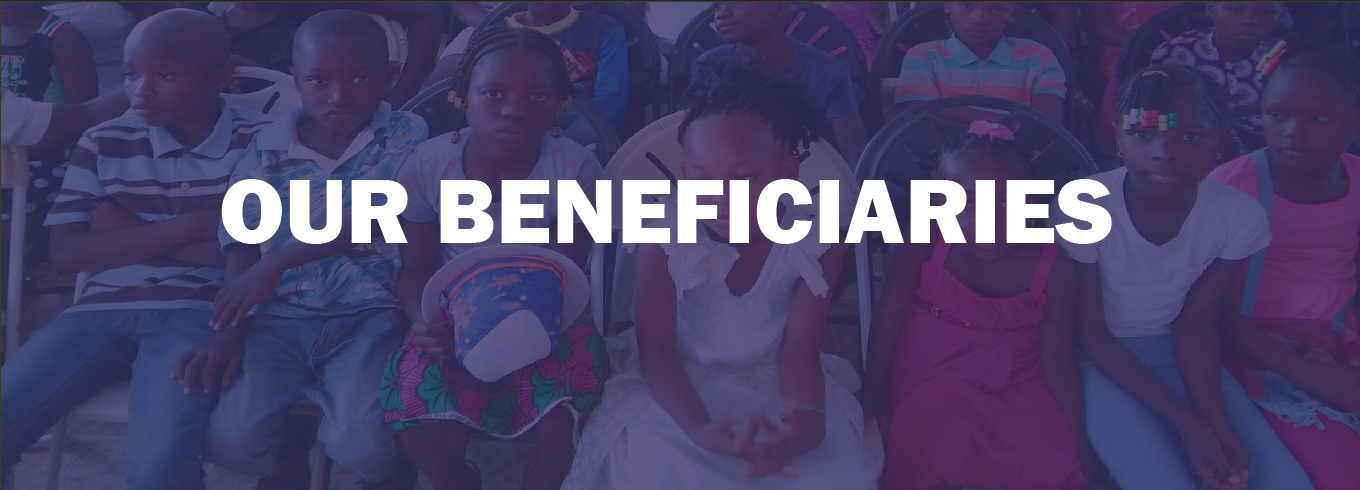
Our beneficiaries are purely women and girls. Our prime beneficiaries are women, girls and other disadvantaged groups- these include, adolescent girls, Commercial sex workers, women whose voices are not heard. In some extreme circumstances, we even fight for men and boys that are equally extremely vulnerable.

Lemon Aid Fund
Lemon Aid Fund has been very instrumental in supporting SHADE-SL through a wonderful tool named Forgiveness, Gratitude and Appreciation (FGA). This tool helps to transform negative to positive emotional states and facilitates the transition from places of fear, hopelessness, hatred, anger, sadness, blame, guilt, and stress to an empowered existence filled with hope, optimism, positivity, passion, joy, happiness, and love, thereby enhancing overall well-being. As we all know Kambia is politically polarized district and FGA helped us to bring people together especially women to amplify their voices leading to Forgiveness, Gratitude and Appreciation. Today, even though we were not able to cover the whole district with this powerful tool, but the chiefdoms we reached were highly grateful for such a project. We really thank the leaders and donors of Lemon Aid Fund for this wonderful initiative.
